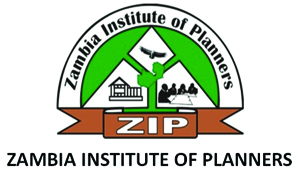 By Venantius Bwalya –
By Venantius Bwalya –
As we endeavour to make sustainable development a reality through the creation of decent jobs that would translate into better and sustainable lives that promote the wellbeing of our people, there is a need to look at some of the tools that can be used to achieve such an objective.
Before expounding on this broad and diverse objective there is a need to define the key term, “decent job,” so to avoid the confusion that would arise from the numerous definitions that one would attach to it.
A decent job according to the International Labor Organisation (ILO) has the following characteristics; involves opportunities for work that is productive and delivers a fair income, this means it includes activities that involve the production of products or the delivery of services which are matched with an income that is at least equal to the time spent or the skill required to produce that product.
In addition, it seeks to promote equality of opportunity and treatment for all men and women.
Secondly, a decent job offers security in a work place.
That is it offers workers the protection from intimidation by management, who threaten to fire them for protesting over low salaries, and their fellow workers through their various unions they belong to.
It also offers workers social protection for families.
This is through provision of basic social services such as health, education, clean and safe water and terminal benefits or gratuity at the end of every workers contract or term of employment.
Thirdly, it offers better prospects for personal development through worker training and re-training programs and awarding of scholarships to workers -wishing to enhance their skills.
Lastly, it promotes social integration which promotes freedom for people to express their concerns, organise and participate in decisions making over issues affecting their lives.
It is very important to mention that if sustainable development is to be become a reality certain areas of society need to be developed to their optimum levels or at least closer to those levels.
Some these areas which are prominent in the development of any country include; the health and the education sectors.
The health sector is one of the priority sectors that contribute to the wellbeing man that ensures the continuity of life and preservation human resource (skilled, semi-skilled and unskilled labour force) to mention a few.
No wander our government has placed the health sector among its top priorities by allocating a significant amount of money in the 2015 national budget to the sector for construction of new health care centres in rural areas, rehabilitation of existing and dilapidated health centers in the urban areas, the purchase of improved medicines and the recruitment of various medical personnel country wide from various learning institutions.
This would ensure a healthy Zambian population that would act as a catalyst in achieving sustainable development.

•A decent job offers better prospects for personal development through worker training and re-training programmes and awarding of scholarships to workers -wishing to enhance their skills.
As well as create decent jobs for the new recruits to enhance health care service delivery, especially in the remote parts of the country.
The education sector which yields skill development plays a critical role in the socio-economic development of any country by providing opportunities for growth, poverty reduction, employment and human development.
The very reason that the current government has recognised this sector as a potential sector that impacts significantly on the nation’s development , hence, it has allocated significant amounts of moneyin its 2015 national budget to this sector.
This is to increase access to education and skills development at all levels through marked increases in construction and rehabilitation of infrastructure (especially at basic school level), expanding access to high school and tertiary education (through the construction of universities in provincial capitals), curriculum review-mostly in tertiary institutions so as to produce graduate with competent skills that are necessary for thriving in today’s demanding labor market and significant recruitment of teachers, especially in rural areas in order to reduce rural illiteracy levels.






